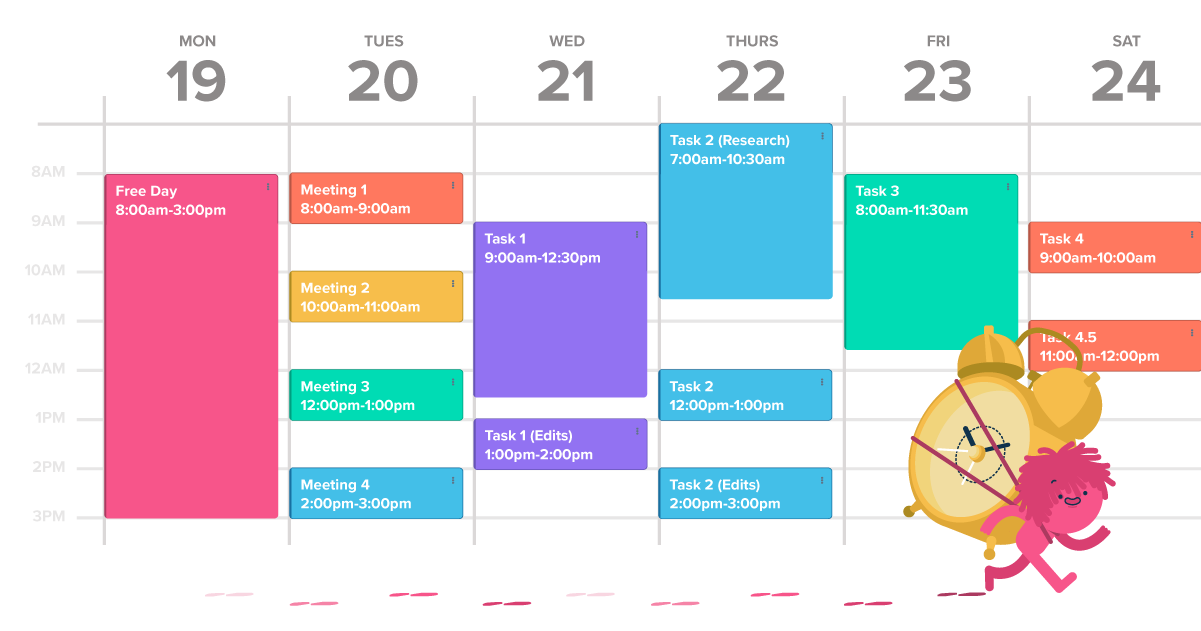Self-Care Meaning
Self-care is one of those buzzwords floating around the internet, but its meaning is somewhat unclear and vague. Some people define it by hot tubs with rose petals, others by binge-watching Netflix. On this broad spectrum, self-care is generally understood as doing something nice and good for yourself.
The World Health Organization defines self-care as ‘the ability of individuals, families and communities to promote health, prevent disease, maintain health, and to cope with illness and disability with or without the support of a healthcare provider.’ Based on this explanation, self-care is about ensuring you are healthy, happy, and ready to thrive at any point in your life (and what that means for you depends on many factors).
Developing Self-Care Skills
Since the definition of self-care is so broad, it is quite easy to get lost in it and misinterpret the idea of what taking care of ourselves actually means. While it’s inviting to order pizza, pop a bottle of wine, and prepare a hot tub, it does not necessarily mean you’re doing yourself a favour.
Self-care is about creating a consistent practice of devoting time to yourself and improving your physical and mental well-being. So, if you are overstressed and overwhelmed, taking a nap may be the best short-term solution (and we do indeed think better when well-rested), but you need to address the underlying issues and find ways to cope with them.
To develop your self-care skills, you’ll have to do some soul-searching and consider what truly boosts your mood, productivity, and overall happiness. Self-care is usually categorised into these three groups:
- Physical self-care – taking care of your body, including hygiene, nutrition, hydration, regular exercise, and rest.
- Mental self-care – organising your time and energy, practising mindfulness and stress management, finding ways to stimulate your brain, and addressing any mental health issues you may have.
- Social self-care – building a strong, supportive network around you, spending quality time in social settings, and setting and upholding boundaries.
Self-Care for Healthcare
They don’t say it in vain – you can’t pour from an empty cup. Living through the global pandemic, war, inflation, and housing shortages get to us all (as if full-time jobs, studying, chores, and taking care of our loved ones didn’t already). Finding ways to practise self-care is of the utmost importance for your health.

Develop Your Self-Care Skills through Mindfulness
What does it mean to be mindful? To put it simply, it is a way of centring ourselves as beings who can take notice of the world around us. It’s a higher degree of self-awareness, which helps you pay more attention to your surroundings (like the smell of grass or the colour of flowers) and your own mind and body. Mindfulness exercises can help you reconnect with your identity when life gets overwhelming and stressful and you feel stuck.
Try these simple ideas:
- Enjoy a good shower. Not only is personal hygiene a great tool for basic self-care, but it can also help you ground yourself. The key to it is to stay present. When you step into the shower, feel the touch of the tiles against your feet. Listen to the hum of the water and adjust the temperature in a way that would give you the sense of having a healing massage. Take your time to relax and absorb the sensations.
- Have a mindful warm drink. Coffee, tea, warm milk – whatever you like, enjoy those first sips (ideally, you’ll enjoy the whole cup) and savour the taste. Think about three things you are grateful for and three things that motivate you to start your day.
- Work on your morning routine. It’s quite easy to get out of bed (after a couple of snoozes) and fall into the abyss of daily stress. Unfortunately, this is a good way to invite even more anxiety into your life, as your cortisol levels are already high after a good night’s sleep. Instead, leave your phone and develop a morning routine where you are the centre of your attention. This helps you slow down and prepares you for the challenges of the day.
- Express yourself. Try journaling, writing, painting (even if you think you’re bad at it), singing, dancing, or any other artistic venture through which you can show and accept your emotions. We tend to bottle bad things up, but arts of all kinds can reduce the emotional load and help you reconnect with your true self.
- Exercise regularly. Exercise is not meant to be torturous – in fact, it should be energising. Exercise boosts your mood, promotes physical and mental well-being, and helps you tune into your own body. There are many types of exercise, and something is bound to work for everyone. Skip the excuses – you can get a good workout in less than 15 minutes – and get down to business. Listen to your body, feel the way it moves, and appreciate it for what it can do.
- Meditate. Meditation helps you clear your mind and focus on the present. There are many types of meditation, like mindfulness meditation, relaxation meditation, and grounding practices. If you are new to it, you can try this simple guided meditation.
Some (Un)conventional Self-Care Tips
There are many ways to treat yourself, but as I indicated, there are sometimes underlying issues that need addressing. If you feel rundown and frazzled all the time, have trouble focusing, or have lost interest in simple things, you may be experiencing burnout or even depression.
It is of the utmost importance to recognise these signs and act accordingly. Booking an appointment with your doctor is a priority, especially if you feel you might be struggling with the latter. While waiting for it, you can try some of these ideas to give yourself some respite.
Find Your Own Self-Care Time
This has to be a conscious act to set aside and actively enjoy some downtime. No matter how busy you are, you must be able to devote 30 minutes of your own attention to yourself and attend to your needs. Go for a walk, exercise, play some relaxing music, or revisit an old hobby. You may find that these little things offer some relief and help you rest.
Work on Your Nutrition
If you cannot manage to treat your body as a temple every day, set aside three days a week when you intend to cook and meal prep. If you cannot cook – it’s time to learn. A bunch of delicious, budget recipes revolve around simmering onions and adding various vegetables and spices and protein sources. Cook in bulk and keep food in airtight containers for several days to spare yourself the last-minute-hangry takeout orders. Your body will thank you.
Learn to Say No
You know what they say – if you want something done, give it to a busy person. But you do not always have to be that person. If you feel your boss is dumping too much work on you, speak up. On the other hand, when your friends start treating you as a free therapist, set boundaries and ensure they are clear. Being overwhelmed, tired, and simply not in the mood for company is a perfectly legitimate reason to take a rain check and relax on your own. Be mindful of your own needs, and don’t feel bad for putting yourself first.
Be Productive
Sounds paradox, but isn’t. Our to-do list, with all the things we have to do and want to do, can be a factor of stress. Being productive and doing the important things you have to do, will help to feel more relaxed. So call the doctor, read this article for your term paper, write ithis essay and learn your vocabulary. You will feel better afterwards, especially when you can check it off on your to-do list 😀

Benefits of Self-Care
Apart from every benefit of improving your health in the long run, there are a few more positives to practising self-care:
- Improved mood.
- Better rest.
- Heightened awareness.
- Increased productivity.
- Greater self-esteem.
These all bring joy and pleasure to your life, rewire your brain towards more positive mindsets, and energise and inspire you to give and receive more, leading you to your happiest and healthiest self. It only takes a bit of time, but the benefits are ample.
Take care of yourself, and your best self will thank you!
Frequently Asked Questions (F.A.Qs)
Mindfulness refers to a higher awareness of yourself and your surroundings. It is achieved through clearing the mind and focusing on the present moment.
To be mindful, try simple guided meditation and grounding exercises. Focus on how you feel and what your body is telling you, as well as what you can see, touch, and smell around you.
Self-care is one of the ways to achieve mindfulness. Focus on treating your body and mind kindly, nourish them through healthy food, exercise, and make sure you are getting enough rest.
How we ensure our content is accurate and trustworthy?
At StudySmarter, we have created a learning platform that serves millions of students. Meet the people who work hard to deliver fact based content as well as making sure it is verified.

Gabriel Freitas is an AI Engineer with a solid experience in software development, machine learning algorithms, and generative AI, including large language models’ (LLMs) applications. Graduated in Electrical Engineering at the University of São Paulo, he is currently pursuing an MSc in Computer Engineering at the University of Campinas, specializing in machine learning topics. Gabriel has a strong background in software engineering and has worked on projects involving computer vision, embedded AI, and LLM applications.
Get to know Gabriel




